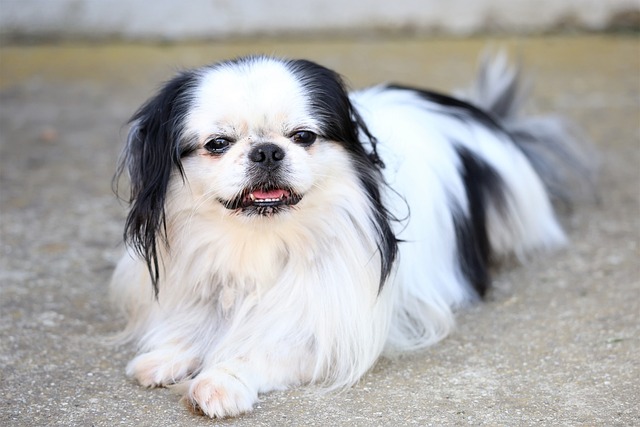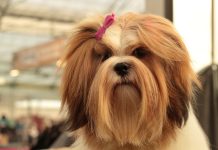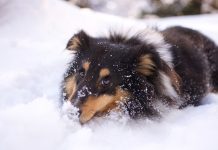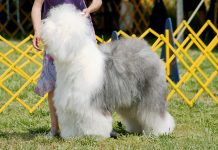History and Origins of the Japanese Chin Breed

The Japanese Chin, also known as the Japanese Spaniel, is an ancient toy breed with a rich history rooted in the aristocratic circles of Japan. Here’s an overview of the breed’s history and origins:
- Ancient Origins: The Japanese Chin’s ancestry dates back over a thousand years, where they were highly prized and selectively bred as companion dogs for Japanese nobility and aristocrats.
- Origin in Asia: Despite the name “Japanese,” the breed is believed to have originated in China and was later introduced to Japan by Buddhist monks and traders around the 8th century.
- Imperial Favor: Japanese Chins became favored by Japanese royalty and nobility during the Heian Period (794-1185 AD). They were kept in imperial courts and revered as symbols of status and refinement.
- Cross-Cultural Influence: The Japanese Chin’s development was influenced by both Chinese and Japanese breeding practices, resulting in the breed’s unique appearance and temperament.
- Companion Role: Japanese Chins were exclusively bred for companionship and were never used for hunting or utilitarian purposes. They were cherished as lapdogs and household pets, often depicted in traditional Japanese art and literature.
- Introduction to the West: The breed was first introduced to the Western world in the mid-19th century when Japanese Chins were presented as gifts to European and American dignitaries. They quickly gained popularity among European aristocrats and were recognized by kennel clubs in the late 19th century.
- Name Change: The breed was initially known as the Japanese Spaniel but was later renamed the Japanese Chin to reflect its Asian heritage and distinctive appearance.
Today, the Japanese Chin remains a beloved companion dog known for its elegant demeanor, affectionate nature, and distinctive appearance.
Physical Characteristics and Appearance of Japanese Chins
The Japanese Chin is a small, well-balanced toy breed with a distinctive appearance characterized by its compact size, refined features, and graceful carriage. Here are the key physical characteristics and appearance traits of Japanese Chins:
- Size: Japanese Chins are small dogs with a height range of approximately 8 to 11 inches (20 to 28 cm) at the shoulder. They typically weigh between 4 to 9 pounds (2 to 4 kg), with males slightly larger than females.
- Body: The Chin has a square and compact body, slightly longer than its height. Despite its small size, the breed is surprisingly sturdy and agile.
- Head: The Chin’s head is broad and rounded, with a short muzzle and well-defined stop. The breed has large, dark, expressive eyes set wide apart, giving them a captivating and alert expression.
- Ears: Japanese Chins have long, feathered ears that hang gracefully down the sides of their head. The ears are set high and covered with profuse feathering.
- Tail: The Chin’s tail is set high and carried over the back, with a profuse plume of feathering. The tail is an important characteristic of the breed’s elegant and aristocratic appearance.
- Coat: Japanese Chins have a luxurious, silky coat that comes in two varieties: black and white (known as “B & W”) or red and white (known as “R & W”). The coat is medium-length and requires regular grooming to prevent matting.
- Color and Markings: The breed’s coat is predominantly white with distinct markings in either black or red. The markings are symmetrical and should be well-defined.
- Expression: Japanese Chins have a sweet and serene expression, with a combination of softness and dignity that reflects their aristocratic heritage.
- Gait: Japanese Chins move with a smooth, effortless gait. Despite their small size, they carry themselves proudly and gracefully.
The Japanese Chin’s elegant appearance, affectionate nature, and historical significance as a companion dog make it a cherished breed among toy dog enthusiasts worldwide. Their gentle temperament, expressive eyes, and delightful personality endear them to families and individuals seeking a loving and loyal companion. Regular grooming, socialization, and positive reinforcement training help ensure that Japanese Chins thrive as pampered and cherished family pets.
Japanese Chin Temperament and Personality Traits
The Japanese Chin is renowned for its charming personality, affectionate nature, and aristocratic demeanor. This toy breed is characterized by its gentle disposition, intelligence, and strong bond with its human companions. Here are the key temperament and personality traits of Japanese Chins:
- Affectionate: Japanese Chins are deeply devoted and affectionate companions. They thrive on human interaction and form strong bonds with their families. They enjoy cuddling and being close to their loved ones.
- Gentle and Calm: This breed has a calm and composed demeanor, often displaying a sense of grace and poise. They are well-suited to indoor living and enjoy relaxing with their owners.
- Playful: Despite their dignified appearance, Japanese Chins have a playful and mischievous side. They enjoy interactive games, chasing toys, and engaging in light-hearted activities with their family members.
- Intelligent: Japanese Chins are highly intelligent dogs that quickly pick up on cues and commands. They are eager to please their owners and excel in obedience training and canine sports.
- Alert and Watchful: Despite their small size, Japanese Chins are vigilant and alert watchdogs. They will bark to alert their owners of approaching visitors or unfamiliar sounds.
- Good with Children: Japanese Chins are typically good with considerate children, although they may prefer calm and gentle interactions. Supervision is recommended to prevent accidental injury due to the breed’s small size.
- Reserved with Strangers: While they are affectionate with their family members, Japanese Chins can be reserved or shy around strangers. Early socialization is important to help them feel comfortable in various situations.
- Low Energy Level: Japanese Chins are not overly energetic dogs and are well-suited to apartment or city living. They enjoy short walks and indoor play sessions.
- Loyal and Devoted: Japanese Chins are fiercely loyal to their families and thrive on companionship. They prefer to be included in daily activities and can develop separation anxiety if left alone for long periods.
- Adaptable: Despite their aristocratic roots, Japanese Chins are adaptable dogs that can thrive in a variety of living situations, provided they receive sufficient attention and companionship.
- Sensitive: Japanese Chins are sensitive dogs that respond well to positive reinforcement training methods. Harsh corrections or punishment can be detrimental to their sensitive nature.
- Quiet: Japanese Chins are not known to be excessively vocal, although they will alert their owners with a bark when necessary.
Training and Socialization Needs for Japanese Chins
Training and socialization are important aspects of raising a well-rounded and well-behaved Japanese Chin. Here are some tips for meeting the training and socialization needs of this delightful breed:
- Positive Reinforcement: Use positive reinforcement techniques such as treats, praise, and play to motivate and reward desired behaviors. Japanese Chins respond well to gentle and consistent training methods.
- Basic Obedience: Teach essential commands such as sit, stay, come, and heel using positive reinforcement. Keep training sessions short, fun, and engaging to maintain the Chin’s interest.
- Socialization: Expose your Japanese Chin to various people, pets, and environments from an early age. This helps them develop confidence and prevents shyness or fearfulness around strangers.
- Handling and Grooming: Accustom your Chin to being handled, groomed, and examined by brushing their coat, trimming their nails, and cleaning their ears regularly. This helps them feel comfortable with grooming tasks.
- House Training: Japanese Chins are generally clean dogs that adapt well to house training. Use consistent routines, reward good behavior, and supervise them indoors to prevent accidents.
- Crate Training: Introduce your Japanese Chin to a crate as a safe and comfortable space. Crate training can help with house training and provide a secure retreat for your Chin when needed.
- Exercise and Enrichment: Provide daily exercise through short walks, indoor play sessions, and interactive toys. Mental stimulation is equally important for this intelligent breed.
- Consistent Routine: Establish a predictable daily routine that includes feeding, potty breaks, training, playtime, and rest. Japanese Chins thrive on structure and predictability.
- Patience and Gentle Handling: Japanese Chins are sensitive dogs that respond best to patience, kindness, and gentle handling. Avoid using harsh corrections or punishment, as it can undermine their trust and confidence.
- Social Interaction: Encourage positive social interactions with other dogs and people to prevent fearfulness or aggression. Supervise playtime with larger dogs due to the Chin’s small size.
By providing appropriate training, socialization, and care, you can help your Japanese Chin develop into a well-mannered, confident, and affectionate companion. Their delightful personality and devotion to their families make them cherished pets for individuals and families seeking a loving and loyal toy breed.
Health Considerations and Common Issues in Japanese Chins
Japanese Chins are generally healthy dogs with a long lifespan, but like all breeds, they may be prone to certain health conditions. Understanding these potential issues and providing appropriate care can help ensure the well-being of your Japanese Chin. Here are some common health considerations and issues in Japanese Chins:
- Respiratory Issues: Japanese Chins have a short muzzle (brachycephalic), which can predispose them to respiratory problems such as snoring, wheezing, and difficulty breathing, especially in hot or humid weather.
- Eye Problems: The prominent eyes of Japanese Chins are susceptible to various eye conditions, including cataracts, progressive retinal atrophy (PRA), and corneal ulcers. Regular eye exams by a veterinary ophthalmologist are recommended.
- Dental Issues: Small breed dogs like Japanese Chins are prone to dental problems such as periodontal disease, tooth decay, and plaque buildup. Daily tooth brushing and regular dental check-ups are important for maintaining oral health.
- Luxating Patella: This is a common orthopedic condition in small breeds where the kneecap (patella) slips out of its normal position, causing lameness or difficulty walking. Severe cases may require surgical correction.
- Heart Murmurs: Japanese Chins may develop heart murmurs or other cardiac issues, such as mitral valve disease, as they age. Regular veterinary check-ups, including cardiac exams, are important for early detection and management.
- Liver Shunt: Some Japanese Chins are prone to portosystemic shunts, a congenital condition where blood bypasses the liver, leading to toxin buildup in the bloodstream. Symptoms include stunted growth, neurological signs, and digestive issues.
- Heat Sensitivity: Due to their brachycephalic anatomy, Japanese Chins are sensitive to heat and may struggle to regulate their body temperature in warm weather. Avoid strenuous exercise in hot conditions and provide a cool, shaded environment.
- Allergies: Japanese Chins may develop allergies to environmental factors (pollen, dust, etc.) or certain foods, resulting in skin irritation, itching, or gastrointestinal issues. Identifying and avoiding allergens is key to managing allergies.
- Obesity: Japanese Chins can gain weight easily if overfed or under-exercised, which can exacerbate existing health issues. Monitor your Chin’s diet and provide regular exercise to maintain a healthy weight.
- Hypoglycemia: Toy breeds like Japanese Chins are susceptible to hypoglycemia (low blood sugar), especially as puppies. Feed frequent small meals and monitor for signs of weakness, lethargy, or trembling.
- Sensitive Skin: Some Japanese Chins have sensitive skin that may be prone to dermatological issues such as dryness, allergies, or skin infections. Use gentle grooming products and consult with a veterinarian for appropriate skincare.
Regular veterinary check-ups, preventive care, and early detection of health issues are crucial for maintaining the health and well-being of your Japanese Chin. Consult with your veterinarian for personalized advice on preventive measures and health monitoring.
Living with a Japanese Chin: Suitable Environments and Lifestyle Considerations

Japanese Chins are well-suited to indoor living and thrive in environments where they receive plenty of attention, companionship, and gentle care. Here are some considerations for living with a Japanese Chin:
- Indoor Living: Japanese Chins are indoor dogs and should have access to a comfortable and climate-controlled environment. They are well-adapted to apartment or city living due to their small size and low exercise needs.
- Close Companionship: Japanese Chins are devoted companions that thrive on human interaction. They enjoy being close to their owners and should not be left alone for long periods.
- Gentle Handling: Due to their small size and delicate build, Japanese Chins require gentle handling and supervision, especially around children or larger pets. Teach children how to interact respectfully with the Chin.
- Moderate Exercise: Japanese Chins have moderate exercise needs and enjoy short walks, indoor play sessions, and interactive toys. Avoid strenuous activities that may strain their respiratory system.
- Temperature Control: Protect your Japanese Chin from extreme temperatures, as they are sensitive to heat due to their brachycephalic anatomy. Provide a cool, shaded area during hot weather.
- Regular Grooming: Japanese Chins have a silky coat that requires regular grooming to prevent matting and tangles. Brush their coat several times a week and clean their ears and trim their nails as needed.
- Socialization: Early and ongoing socialization is important for Japanese Chins to build confidence and prevent shyness or fearfulness around strangers. Expose them to various people, pets, and environments from a young age.
- Routine Healthcare: Schedule regular veterinary check-ups, vaccinations, and preventive care to monitor your Chin’s health and detect any potential issues early.
- Nutrition and Weight Management: Feed your Japanese Chin a high-quality diet formulated for small breed dogs and monitor their caloric intake to prevent obesity. Avoid feeding table scraps or excessive treats.
- Safety Precautions: Japanese Chins are curious and may be prone to exploring small spaces or heights. Keep hazardous items out of reach and provide a safe environment to prevent accidents.
By providing a loving and attentive home environment, regular veterinary care, and appropriate lifestyle adjustments, you can ensure that your Japanese Chin thrives as a cherished companion. Their affectionate nature, charming personality, and aristocratic demeanor make them wonderful pets for individuals and families seeking a loyal and devoted toy breed.
Japanese Chin Variations and Breeding Practices
The Japanese Chin breed is relatively uniform in appearance and adheres closely to a specific breed standard. However, like all breeds, there can be variations in certain aspects of the Japanese Chin’s appearance and breeding practices. Here’s an overview of Japanese Chin variations and common breeding practices:
Variations in Japanese Chins:
- Color and Markings: Japanese Chins typically come in two primary color combinations:
- Black and White (B & W): Predominantly white with black markings, including patches or spots on the head and body.
- Red and White (R & W): Predominantly white with red markings, which can range from deep red to a lighter shade. While these are the standard color combinations, slight variations in color intensity and pattern may occur.
- Coat Texture: Japanese Chins have a silky, straight coat that lies close to the body. While the breed standard describes the ideal coat texture, minor variations in coat length and texture may be observed.
- Facial Features: The Japanese Chin’s facial structure is characterized by a short, broad muzzle, large dark eyes, and a well-defined stop. Variations in head shape or expression are relatively minimal due to adherence to breed standards.
- Size: Japanese Chins are small toy breeds with specific size ranges defined by breed standards. Minor variations in height or weight within these ranges may occur.
Breeding Practices for Japanese Chins:
Responsible breeders adhere to ethical breeding practices to preserve the health, temperament, and conformation of the Japanese Chin breed. Here are key considerations for breeding Japanese Chins:
- Health Screening: Reputable breeders conduct comprehensive health screenings on breeding dogs to identify and eliminate hereditary health issues. This includes testing for eye conditions, cardiac health, patellar luxation, and other breed-specific concerns.
- Conformation to Breed Standard: Breeders prioritize breeding dogs that closely conform to the Japanese Chin breed standard set by kennel clubs and breed organizations. This includes adherence to size, color, markings, facial features, and overall structure.
- Pedigree Analysis: Responsible breeders maintain accurate pedigree records and trace the lineage of their breeding dogs to ensure genetic diversity and avoid the transmission of undesirable traits.
- Genetic Testing: Breeders perform genetic testing for known hereditary conditions prevalent in Japanese Chins, such as progressive retinal atrophy (PRA), to reduce the risk of passing on genetic diseases to offspring.
- Temperament and Behavior: Ethical breeders select breeding dogs with stable, friendly, and well-adjusted temperaments. This helps ensure that puppies inherit desirable temperament traits, including affection, intelligence, and sociability.
- Continued Education and Improvement: Reputable breeders are committed to continuous learning and improvement in their breeding programs. They participate in breed clubs, events, and activities to promote breed health and integrity.
- Ethical Placement: Responsible breeders prioritize responsible placement of puppies in suitable homes, conducting interviews and screenings to ensure prospective owners can provide lifelong care and commitment to their Japanese Chin.
- Health Warranty and Support: Reputable breeders offer health warranties and ongoing support to puppy buyers, ensuring transparency and accountability in their breeding practices.
By following ethical breeding practices and prioritizing the health, temperament, and breed standards of Japanese Chins, responsible breeders contribute to the preservation and improvement of this beloved toy breed. Prospective Japanese Chin owners should seek reputable breeders who prioritize health, temperament, and breed integrity in their breeding programs.
50 Best Names with Meanings for Japanese Chins
Choosing the perfect name for your Japanese Chin can be a delightful way to celebrate their charm, elegance, and unique personality. Here’s a list of 50 best names with meanings for Japanese Chins:
- Hoshi – Means “star” in Japanese, fitting for your shining companion.
- Mochi – A sweet Japanese rice cake, perfect for a delightful Chin.
- Kiku – Represents the chrysanthemum flower, a symbol of longevity and beauty.
- Suki – Means “beloved” in Japanese, reflecting your affection for your Chin.
- Haru – Signifies “spring” in Japanese, ideal for a lively and vibrant Chin.
- Kai – Represents “ocean” in Japanese, fitting for a Chin with a free spirit.
- Miko – Means “shrine maiden” in Japanese, reflecting elegance and grace.
- Riku – Signifies “land” or “shore” in Japanese, symbolizing strength.
- Yuki – Means “snow” in Japanese, suitable for a white or fluffy Chin.
- Nori – Represents seaweed used in Japanese cuisine, ideal for a playful Chin.
- Kumo – Means “cloud” in Japanese, reflecting a dreamy and soft nature.
- Taro – A common Japanese name meaning “big boy,” perfect for a male Chin.
- Momo – Represents “peach” in Japanese, symbolizing sweetness and charm.
- Ren – Means “lotus” in Japanese, a beautiful name for a serene Chin.
- Sora – Signifies “sky” in Japanese, reflecting boundless freedom.
- Aiko – Means “love child” in Japanese, fitting for a cherished companion.
- Hana – Represents “flower” in Japanese, ideal for a delicate and lovely Chin.
- Koji – Means “little one” in Japanese, suitable for a petite Chin.
- Mitsu – Represents “light” or “honey” in Japanese, symbolizing warmth.
- Yoshi – Means “good” or “righteous” in Japanese, reflecting noble qualities.
- Nami – Signifies “wave” in Japanese, ideal for a playful and lively Chin.
- Kiko – Represents “hope” in Japanese, symbolizing optimism and joy.
- Rin – Means “dignified” in Japanese, fitting for a regal and composed Chin.
- Toki – Signifies “time” in Japanese, reflecting the timeless elegance of your Chin.
- Sakura – Represents the cherry blossom, a symbol of beauty and renewal.
- Toshi – Means “year” or “age” in Japanese, ideal for a wise and mature Chin.
- Miki – Represents “beautiful princess” in Japanese, fitting for an elegant Chin.
- Kiku – Means “chrysanthemum” in Japanese, symbolizing loyalty and devotion.
- Riku – Signifies “land” or “shore” in Japanese, reflecting strength and stability.
- Yumi – Represents “archery bow” in Japanese, ideal for a Chin with grace and precision.
- Tora – Means “tiger” in Japanese, symbolizing courage and strength.
- Suki – Represents “like” or “love” in Japanese, fitting for an affectionate Chin.
- Kai – Signifies “sea” in Japanese, reflecting a free-spirited and adventurous nature.
- Mika – Means “beautiful fragrance” in Japanese, ideal for a Chin with a sweet demeanor.
- Hiro – Represents “generous” or “tolerant” in Japanese, reflecting kindness.
- Mai – Means “dance” in Japanese, symbolizing grace and elegance.
- Kenji – Represents “intelligent second son” in Japanese, ideal for a smart and clever Chin.
- Sasha – A unisex name meaning “defender of mankind,” suitable for a protective Chin.
- Sumi – Signifies “ink” or “black” in Japanese, perfect for a Chin with dark markings.
- Niko – Means “sunlight” in Japanese, reflecting warmth and radiance.
- Kimi – Represents “noble” or “righteous” in Japanese, fitting for a dignified Chin.
- Toki – Signifies “time” or “period” in Japanese, reflecting a timeless quality.
- Emi – Means “beautiful blessing” in Japanese, ideal for a cherished companion.
- Yoshi – Represents “good luck” or “righteous” in Japanese, symbolizing noble qualities.
- Sora – Signifies “sky” or “heaven” in Japanese, reflecting boundless freedom.
- Suzu – Means “bell” in Japanese, suitable for a Chin with a melodious bark.
- Ren – Represents “lotus” in Japanese, symbolizing purity and beauty.
- Kai – Signifies “ocean” or “shell” in Japanese, fitting for a Chin with a free spirit.
- Hana – Means “flower” in Japanese, ideal for a delicate and lovely Chin.
- Yuki – Represents “snow” in Japanese, symbolizing purity and elegance.
Choose a name that resonates with your Japanese Chin’s personality, appearance, or your personal preferences. Whether you prefer a traditional Japanese name or a name inspired by nature or cultural symbols, your Chin will respond to the love and care you provide, regardless of their name!

In conclusion, the Japanese Chin is a captivating and elegant breed with a rich history dating back centuries in Japan. This small companion dog is cherished for its charming demeanor, graceful movements, and affectionate nature. Japanese Chins are well-suited for indoor living and thrive on companionship, forming strong bonds with their families. They are known for their expressive eyes and silky coat, which require regular grooming to maintain their beauty. Despite their small size, Chins have a confident and independent spirit. They excel in obedience and agility training, showcasing their intelligence and eagerness to please. Overall, the Japanese Chin is a delightful breed that brings joy and companionship to any household fortunate enough to have one.






























